Dr.Bajram Haliti : Incredible rome protector philosopher
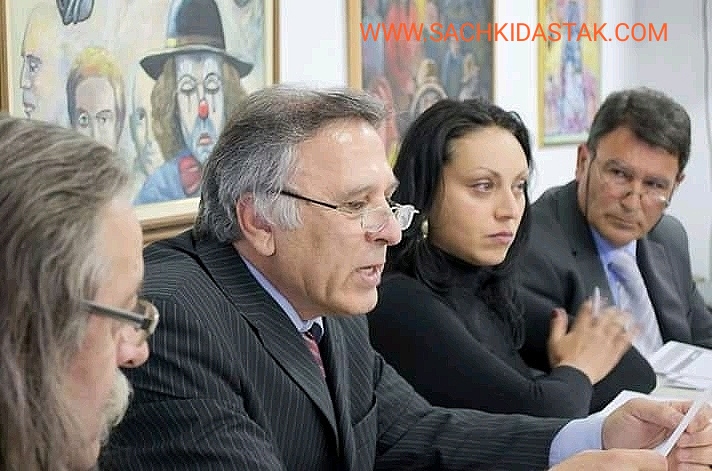
Dr Bajram Haliti, lawyer trainee and doctoral candidate
Secretary General of World Roma Organization – Rromanipen
INTERNATIONAL ROMA CONFERENCE
(February 2016, New Delhi – India)
CONSTITUTIONAL – LEGAL STATUS AND INTEGRATION OF THE ROMA IN THE EU MEMBER STATES AND BEYOND
SUMMARY:
Today, on the threshold of the third millennium, our generation is being asked the eternal question – how to defend one’s integrity and free development of the human personality from the terrifying manipulation, control and violence against the man, which are being performed by the combined political, economic and technical powers in all social orders? Chronicles and texts that have been published since 1300 to today shows that Europe is soaked with tears and blood of Roma. Emperors and kings, parliaments, prelates, courts and police, theologians and priests, writers and philosophers, all declared against them – in a word, everyone who in front of them showed „bloody under the skin, without having either to repent or to be ashamed of ” (as wrote by the Yugoslav Nobel Prize winner Ivo Andric). Since the beginning of time the struggle for human rights is on. Ever since subordinated not only to nature, but also to other people, as an individual, a member of a particular social class, religion, race, nationality, sex, age, the man himself or in reliance on like-minded people, the state, international organizations, has been fighting for his rights. In this struggle there were ups and downs, but the set of human rights of the man as an individual, as a member of warranted social groups, citizen of the state and the subject of the international community, was rapidly expanding. The reasons why the issue of the Roma minority status wasn’t raised for so long are multiple – firstly, their unfavorable social position conditioned that they themselves did not have the power to efficiently organize internationally and pose their own issue on the agenda; secondly – long prevailed the understanding that the issue of the Roma is the issue of their socialization and that their specificity, their specific way of life, culture and customs are nothing more than social deviation that needs to be corrected, not the value that should be preserved; finally, as very important in the international relations, India, our ,, homeland“, should be taking care of us and represent our interests at the international level.
KEY WORDS: Exodus, India, Roma, constitutional law, human rights, discrimination, racism, xenophobia, segregation, minority protection, recommendations
INTRODUCTION:
Dear participants of the International Conference, ladies and gentlemen, dear friends,
As a lawyer trainee, doctoral candidate, journalist, publicist, member of the Association of Writers of Serbia, Secretary General of the World Organization of the Roma population Rromanipen and ethicist, please, let me begin my expose by expressing my sincere gratitude to the Prime Minister of the government of India Mr. Narendra Modi, the Minister of Foreign Affairs, the President of the Congress Party Sonja Gandhi, commoner Harisingh Rathod, the prominent academician, sociologist, writer, journalist, the Commissioner for Education in the World Roma Organization Dr. Shyam Singh Shashi, to Mr. Dev Bhardwaj, the Commissioner for Diaspora contacts with India, and all those present. I would especially like to thank Mr. Shyam Parandi, the Secretary General of the INDIAN COUNCIL FOR INTERNATIONAL CO-OPERATION, who is among the most deserving for organizing this international conference today, and who invited me, as the General Secretary of World Roma Organization-Rromanipen, to express my ,,Thoughts about peace and freedom” and to indicate my thoughtfulness of historical being of Roma people which is, in today’s world, probably mostly known by great sacrifices and sufferings for freedom, which claims ideological essence of the Roma collective spirituality and morality. These guidelines have made the Roma people the historical people in the Hegelian sense of the phrase, and in my understanding of human destiny – a tragic people.
The exodus of Roma from India-
The Roma have suffered an exodus from their homeland of India, from VIII to XII century when they had the greatest historical and political role in North and North-western India, where 21 kingdom was created, of which the individual ones in Rajasthan, Punjab, Haryana, Delhi, Gujarat and Uttar Pradesh (Kanauj) were Roma.
When defeated by the conquerors of India in the eleventh and twelfth centuries, Roma have had to tolerate the ultimate sacrifice. The last of these invaders were eventually assimilated and became Indians. Roma of the ancient Indian origin were, however, uprooted from the soil of India and damned to be aliens from the cradle to the grave.
Chronicles and texts that have been published since 1300 to today shows that Europe is soaked with tears and blood of Roma. Emperors and kings, parliaments, prelates, courts and police, theologians and priests, writers and philosophers, all declared against them – in a word, everyone who in front of them showed „bloody under the skin, without having either to repent or to be ashamed of ” (as wrote by the Yugoslav Nobel Prize winner Ivo Andric).
Roma were systematically persecuted, severely punished, arrested and hanged in many countries, from Greece, Croatia and Hungary, across Romania, Czech Republic and Germany (the country which has published approximately 150 laws against Roma from 1500 to 1800, on the basis of which the Germans had the right to kill them at every turn as „pests“ and ,, game,” and to be financially rewarded for their crimes) to Switzerland, France, England and Spain (where the Roma, at the behest of King Alfonso V, 1416 -1458, royal couple Ferdinand of Aragon, 1479-1516, and Isabella of Castile, 1474-1504, Charles V, 1506-1556, and his contemporary Prince Philip, etc. were a dead duck to the Inquisitors, whose departure to hunting the Roma used to be announced by church bells). The representatives of the Spanish authorities were imprinting to Roma a special mark on the body with a hot iron, cutting off their body parts, gaining them the eternal darkness by blinding them, imposing them life sentences and deporting them to the Spanish colonies.
Roma were punished in various ways: by confiscation of property, fining, cutting, whipping and beatings, stamping with red-hot irons, imprisoning, cutting off ears, noses, blinding, by the imposition of the death penalty by strangulation, hanging, spreading out on the wheel, guillotine, the imposition of a life sentence, deportation to the colonies, seizing their children, who were then given to the European families and government institutions for the purpose of “special education” or sometimes even for sacrifice – to be bricked in alive in the foundations of some buildings such as bridges, churches, etc.
In three years the 1000 anniversary of the outing of Roma from India will be marked. I hope the millennium of our exit will be marked firstly in India, and then in the whole world.
Constitutional and legal position of Roma in the postwar period
Even today, on the threshold of the third millennium, our generation is being asked the eternal question – how to defend one’s integrity and free development of the human personality from the terrifying manipulation, control and violence against the man, which are being performed by the combined political, economic and technical powers in all social orders?
In the period from 1945 until the entry into force of the current Law on the Protection of National Minorities, constitutional status of Roma was not accurate, valid and fully defined in the countries of Southeastern Europe, so in the constitutional-legal acts were mentioned terms like nation, national community, nationality, ethnic groups and dr.
So in the constitutions of the countries of the former Yugoslavia, the countries of the Southwestern Balkans and Southeastern Europe the term minority was mentioned and applied in practice, but it wasn’t explicitly stated that the Roma also were a national minority.
Such constitutional and legal situation contributed to the situation where the Roma didn’t, in the overall social political life, take the position that belonged to our people according to all the standards that applied to other nations, i.e. national minorities.
Also, in the Constitutions of the former countries of South-Western Balkans from 1990 the concept of ethnic groups is being mentioned and it states explicitly that the Roma are an ethnic group because they have no home country. This definition has caused great harm to our people because even though we actually were the largest national group after constitutive people, we did not participate in the distribution of all three forms of government (judicial, legislative and executive) in proportion to the percentage shared in the total population.
The social situation of the Roma in Southeast and Central Europe
In the European Union today there are between twelve and fifteen million Roma. This number roughly corresponds to the population of a medium size Member State of the European Union. Nevertheless, the majority still knows little about the people which populates the European continent over seven centuries. This knowledge is often based on ignorance, prejudice and stereotypes. Today, on the threshold of the third millennium, the Roma are still considered inferior or “pariahs” by many.
This is proven daily by physical attacks and racial harassment they are exposed to, and by ghettoization, segregation and general disrespect of their most basic human rights – the right to work, to educate, to be protected by the judiciary, to have their own culture … so the statement that the Roma have became a target of various attacks across Europe is absolutely correct.
The European Council and its Commission on Human Rights hardly ever talk about the issue that is the essential question of the Roma people. They do not say how many students in Europe are left uncovered by the primary and secondary schools, how many Roma girls have given up on further education, how many Roma families there are that have no employed members, how many Roma who roam the streets of Europe looking for work, how many Roma minors who are exposed to the ruthless exploitation of different employers, etc. Why the Europe continues the history of such a lack of understanding of the Roma national feelings? Why is the expression of the Roma national identity being limited? Isn’t that an anti-civilizational attitude to one nation today?
The Second World War brought to Roma the greatest disaster ever recorded in the history of this nation. Hitler considered the existence of Roma the greatest offense of the racial ideal.
Gas chambers, processes, decrees, regulations, persecutions, executions without evidence, the crimes for prevention and self-defense, prisons, ghettos, forbidden zones, the gas chambers of Auschwitz and experimental scalpels of Auschwitz, Dachau and Buchenwald doctors, and other concentration camps took the lives of 3,500.000 Roma. The Roma were, in a word, going through Dante’s inferno – from Vitosha, through Iasi, to Auschwitz and Jasenovac.
Starting from the World War II Holocaust, the issues of humanity, democracy and the equal value of all people should be raised.
Even today, at the beginning of the third millennium, the Roma are not even at the beginning of their emancipation. Their ultimate issue is still the bear survival. The Roma, the most slaughtered, most persecuted, most humiliated people remained mostly at the bottom of life in the vast mass of illiterates, for now. The Roma community, after over a thousand years of living in diaspora lives in conditions that can hardly be compared with the diaspora situation of any other people.
While some live in relative comfort, millions of Roma across Europe live in slums which they raise wherever they can. Others are not so lucky, they live on the street and all they have is a piece of cardboard or plastic. Many Roma earn for survival by doing whatever they can – rummaging through the rubbish bins, working as laborers, or using small carts to collect cardboard, empty bottles, cans, etc.
The social position of the Roma in South Eastern and Central Europe even today is worse than that of the rest of the population. According to the report of the European Committee on Migration from 1995 which deals with the situation of Roma in Europe: “They are at a disadvantage in almost all areas: education, employment, health, housing and participation in public life.” Also, human rights of Roma are a subject to constant violations, especially in Southeastern Europe. The cases of violence against Roma by extremist and pro-fascist groups such as skinheads are particularly serious. On the other hand, the authorities, particularly in Southeast Europe, are often indifferent to violations of the rights of Roma, and in some cases themselves also participate.
Anti-Gypsyism is a specific form of racism, an ideology based on racial superiority, i.e. a form of dehumanization and institutional racism nurtured by historical discrimination, which is expressed, among all, through violence, hate speech, exploitation, stigmatization and most flagrant forms of discrimination.
Discrimination based on race, color or national origin (“racial discrimination”) is, almost always, a violation of human rights. According to what is written in the International Convention on the Elimination of All Forms of Racial Discrimination, the main international law that deals with the prohibition of racial discrimination, the term “racial discrimination“ means any distinction, exclusion, restriction or preference based on race, color, descent, national or ethnic origin which has the purpose or effect of nullifying or diminishing the recognition, enjoyment or achievement, on an equal basis, of human rights and fundamental freedoms in the political, economic, social, cultural or any other field of social life.
And after point 31 of the Copenhagen Document, which commits member states of the European Union to take the necessary measures to prevent discrimination both on individual and collective level, particularly in relation to employment, housing and education, on the grounds of belonging or not belonging to a national minority, in Europe they apply the policy of double standards to Roma.
Gentlemen, don’t you think that the Roma are the only people in Europe who voluntarily gives up on their rights? The Roma today, as a people and as individuals, are really a challenge for justice and truth. For, the Roma in Europe and beyond have their rights and freedoms compromised both as a people and as individuals.
Inclusive society was and should remain a key priority for the European Union since the adoption of the Convention for the Protection of Human Rights and Fundamental Freedoms (1950), making substantial and significant progress over time. As a result, a strong and sustainable political and economic development has enabled European progress at all levels to transform Europe into an expressive and prosperous continent with improved living conditions of all social groups.
The last 20 years were devoted to glorifying the success of the EU and its political and socio-economic approach, which enabled the Europeans and migrants from other continents to join a better life through diligently increasing recourses, services and infrastructure in areas such as employment, health, housing, education, etc. The glory of such inclusive policy has enabled many deprived communities in Europe to rise above their status, it provided access to millions of people to live and to strive for a decent life – as a natural fundamental right of all human beings. As a result of European ideologies and practices, we have present Europe and its progress.
Despite the European glorified progress and development, no one can deny that in this beautiful image of Europe is still plenty of ideological stains and dirty practices known as racism, exclusion, discrimination and marginalization against its largest and historically most excluded minority – the Roma people.
Europe, therefore, shows a very controversial picture: adorable, progressive, modern and developed continent, but powerless to ensure the integration of its most excluded citizens – the Roma, nor the respect of their fundamental human rights.
Therefore, as long as social inclusion and the rights of the Roma people remains just a theory on the political agenda, then Europe was and still is a progressive and developed place for people who enjoy access to their rights, but not for the Roma. Until legislative and executive instruments are in lack of implementation, and while they don’t deliver a real socio-economic approach to the development of the Roma people – stigmatized and excluded Roma people can not be blamed for their historical circumstances.
Protection of Roma-
Speaking of XX century, in which the question of protection of minorities growed into the international system, it should be noted that the principle of the protection of minorities was not included in the pact of societies people, but as part of the peace treaty, on which bases the so-called Versailles Europe was made, some countries, like Poland, Czechoslovakia, Romania, Greece and the Kingdom of Serbs, Croats and Slovenes, had to assume the obligations of the protection of minorities. In the Kingdom of Serbs, Croats and Slovenes all political parties were against taking these obligations, therefore the government has resigned, but the obligation to protect minorities had to be accepted.
After the World War II, in agreements made within the Paris Peace Conference of 1946-1947, the specific provisions on the Protection of Minorities did not make in, but more extensive and more abstract formulation that regardless of race, religion, gender and language everyone must be ensured the enjoyment of human rights and fundamental freedoms.
A radical shift and a fundamental determinant in the contemporary international legal order of protection of status and the rights of minorities is article 27 of the International Covenant on Civil and Political Rights from December 16th 1966, which states that the members of minorities can not be deprived of their right to their own cultural life, the confessions and rites of their religion and to use their own language.
So, besides the basic rights of national minorities, such as voting rights for members of national minorities, the right for equality with members of the majority people, the right to use their language in private and public life, there are rights that are occurring within the OSCE for the first time as a right which could be conditionally called ‘collectively rights, but not the rights that ethnic communities use as a group, and develop freely their national identity. This primarily includes the right to expression, preservation and development of identity, the right to nurture and the development of culture, the right to establishment and preservation of educational, cultural and religious institutions, the right to manifest one’s own religion, academic institutions etc.
Experience has shown that for the majority-minority relations in the countries in transition towards democratic political system, the cooperation of political representatives of the majority and the minorities, the establishment of an atmosphere of tolerance is the priority, and only then the adoption of joint documents on the structure of minority relations. The minority issue is primarily a political issue, and only then the normative and institutional issue.
Minority rights are basic human rights, not privileges as often heard in political jargon, and there exist for the sake of preserving the identity of minorities, their peculiarities and traditions. Protection, however, implies institutional measures which ethnic groups use to protect and promote their cultural and political interests. The right to local and regional government is also enshrined in regions where minorities constitute the majority.
The initiative to formulate minority rights was shown by Western countries. After World War II the emphasis was on individual rights, but in the early nineties the focus shifted from individual to collective rights. Between 1990 and 1995, the OSCE and the Europe Council have adopted standards that prohibit forced assimilation and transfer of the population, i.e. that take into account the demands of minorities making tnem legitimate subjects of discussion at the UN and European regional organizations.
Both the minority standard of the OSCE and the Europe Council, which constitute the European standard in the field of protection of minorities, show that the essence of minority protection is not in the provisions, institutional and legal framework, but primarily in government policy and the attitude of all, political and non-political actors in society.
If the practical conduct is directed towards the creation of a spirit of tolerance and mutual respect – also the protection of national minorities will be in accordance with this policy. However, if government policy is discriminatory, there won’t help even the best institutional and legal solutions, because ethnic minorities will actually be in a bad position.
The issue of protection of human and minority rights of the Roma is not only a question of law and its application. Firstly, it needs to be fought against entrenched prejudice against Roma, which represent not only a form of disguised racism, but also serve as basis for inciting hatred and violence against Roma. Also, the states need to do much more to improve the economic and social position of the Roma in general, so that they cease to be at the margins of society.
All in all, the Balkans and South East Europe needs a new institutional and legal framework and a new policy towards minorities which should be developed in parallel and without delay.
Recognition of the Roma
As you well know, in the last 100 years periodically have occurred initiatives of Roma intellectual elite that the problem of recognition and definition of the status of the Roma people once and for all gets resolved, but the results remained without lasting effect due to the fact that the Roma as a national minority scattered throughout world, have no recognition in the first place, from their mother land India, and therefore do not have the political and institutional support for their requirements which have been laid down in several international meetings and conferences held in recent decades.
The reasons why the issue of the Roma minority status wasn’t raised for so long are multiple – firstly, their unfavorable social position conditioned that they themselves did not have the power to efficiently organize internationally and pose their own issue on the agenda; secondly – long prevailed the understanding that the issue of the Roma is the issue of their socialization and that their specificity, their specific way of life, culture and customs are nothing more than social deviation that needs to be corrected, not the value that should be preserved; finally, as very important in the international relations, India, our ,,homeland“, should be taking care of us and represent our interests at the international level.
The World Roma Organization with headquarter in Serbia has, since its founding, given itself the task of continuing this process and trying to complete the international recognition of the Roma as a national minority originating in India. In this sense, we were making more or less successful contacts with the Government of India. Let me remind you that in 1983, the Prime Minister of India Indira Gandhi, as a sponsor of the festival of Roma culture in Chandigarh (Punjab), recognized the Roma as ,,children of India” and declared their language, Romany, one of the „official languages of India“ – the faith was strengthened. The Roma came into the soil of their homeland and some of these groups began to perceive them as their own ,,great-ancestors “.
Also her father Nehru showed the interest in Rome, who during his stay in ex Yugoslavia has visited a Roma settlement in Belgrade. After that visit, Nehru’s Secretary Camano Lal wrote a book called „The Roma, forgotten children of India“.
Speaking to representatives of the International Organization of Roma and many participants of the festival in Chandigarh, Indira Gandhi said to have come to this ceremony because ”she felt kinship with Roma people”.
“About 15 million Roma were displaced around the world. Their story is the story of suffering and sorrow, but it is also a story of the triumph of man’s spirit over all that holds him back. The persecutions which the Roma bravely faced for nearly a thousand years and which are in our time marked by Hitler’s genocidal madness – all this makes them an example of courage and perseverance. These qualities are closely linked with India, which the Roma consider their ancestral home”.
Her inspiring speech, which was blatantly welcomed by the present people, Indira Gandhi ended with these words: “Indian nations support the efforts of Roma for enriching their culture. They are an example of national struggle at the international level, beyond any prejudice, generously thinking of all people as one family living in harmony, mutual trust and peace”.
Since then, among the European and Indian Roma different shapes and forms of cooperation have been established, particularly in the cultural and scientific field. The groups in Punjab, Rajasthan and Banjara Hills in Bombay have shown the greatest interest for Roma movement, but this interest and the revival of historical and cultural ties is being continued also among the Indians of other Indian states such as Haryana, Uttar Pradesh, etc. Roughly estimated, India has about 250 million Roma.
CONCLUSSION
The centenary commitment of Roma intellectuals to permanently define the legal and political status of Roma is, viewed in the light of globalist changes, a big test or, put more simply, the assimilating pressures have grown to such an extent that the very physical survival of Roma, as an authentic planetary community, is called into question. Why? For the Roma, even in countries where they are recognized as national minorities, are even today exposed to discrimination and passive isolation by the members of the peoples whom they live with; the average educational level is methodically held very low, as the mutual distrust within the Roma groups is systematically nurtured by stakeholders who have themselves set the task that the permanent resolution of the Roma issue should never be raised.
Consequently, any initiative of Roma intellectual elite to homogenize the Roma community across the globe and to build its own institutions: educational, cultural, informational, all to political, quickly fades away because there is no infrastructure for it, as there are no assets to be built.
And without institutions, the resistance to assimilation and the struggle for planetary recognition of Roma as an authentic community originating in India is slowly dying. The work of only our organization requires, for Roma, the unthinkable funds, and to achieve even a zone of influence in the realization of the goals, it takes ten times as much.
And who‘s interest is that Roma disappear and be assimilated? All of those who secretly still believe in racial theories of Adolf Hitler and that their nation is better, prettier, smarter, and therefore more valuable than others. They delight in the fact that we weren’t yet recognized even by our mother India, which gives them the right to label us and treat us as “lower species.”
When you take that into consideration, and also the fact that there is no hierarchically organized system of Roma institutions across the globe, than it‘s not surprising that each of our serious initiatives to solve systematic problems of interest to the Roma across the globe experience debacle and is being admitted as frivolous.
The Framework Convention on Human Rights, which is designed to protect the rights of national minorities is fatal to Roma. Why? For now, the Roma are recognized as a national minority in the constitutions of the following countries: Federal Republic of Germany, Austria, Finland, Sweden, Montenegro, Macedonia and Serbia, while in some other countries the initiative to do so is also launched. Therefore there are no mechanisms and instruments that could force the countries where the Roma don’t have national minority status, to protect the rights of the Roma on the basis of the Framework Convention for the Protection of National Minorities, which was adopted in 1995. In this sense, it is necessary to initiate and modify the Convention on the basis of the Declaration of Human Rights, which is based on the individual’s right to equality, freedom and life which is transferred to communities and groups. Then, the Roma could also protect their individual, collective and national rights.
What is required to the political scene of India to initiate the process of recognition of Roma as the Indian diaspora? Do we have to change the name of the nation? I suggest that we become Hindus, instead of Roma, if it will be a prerequisite to be recognized by our home state. Because one of the conditions for the launch of solving the Roma issue is, as it‘s written in International law, THAT THE MINORITY HAS A DISTINCTIVE HOME COUNTRY.
As Secretary General of the World Organization of Roma, I speak to the authorities in India with an appeal to build a political consensus on the recognition of Roma as linguistic, historical and cultural minority and to demand of the United Nations that their authoritative organs raise, at the General Assembly, the question of planetary legal and political position of the Roma-Hindus.
The Roma organization base this requirement on facts: (1) The Roma live in many countries of the world where their position and status has not yet been regulated, which is (2) in opposition to the UN Charter, which includes the protection of national minorities into the system of providing universal and real respect for human rights and fundamental freedoms for all without distinction as to race, sex, language or religion, and also constitutes a violation of the Universal Declaration of Human Rights and the Convention on the Elimination of All Forms of Racial Discrimination. In addition to the denial of fundamental rights and freedoms, the Roma (3) have suffered a specific injustice as a result of genocide against them, committed during the World War II. Starting from the fact that about 3,500,000 million Roma got killed than, a large number of members of this people suffered irreparable losses, the World Roma Organization points out that the Federal Republic of Germany has a moral responsibility to give compensation to the victims of fascist terror and their families.
Starting from the fact that the situation of the Roma was never discussed, nor have been undertaken any action to resolve it, we seek the support of the Indian government to appeal to the highest organs of the United Nations that this issue gets included in its program and that it’s considered at one of its sessions. According to our assessment, weight and importance of this issue requires that it, after a thorough discussion in the relevant working bodies of the United Nations, gets included in the agenda of the General Assembly in order to adopt an appropriate resolution on the legal and political situation of the Roma.
We expect this to be an act of the United Nations that would, starting from the UN Charter and its Regulation of Universal Respect and Acknowledgment of Human Rights and Fundamental Freedoms for all without distinction to race, sex, language or religion; Universal Declaration of Human Rights; Convention on the Prevention and Punishment of the Crime of Genocide and the Convention on the Elimination of All Forms of Racial Discrimination – a) recognize a special and distinctive character of the Roma as a single nation whose parts are scattered in many countries, members of the United Nations; b) sentence unsatisfactory legal and political situation of the Roma in some countries, especially with regard to the denial of fundamental freedoms and rights that are normally enjoyed by the members of other nations; c) invite all these countries to apply international obligations and standards relating to the equal enjoyment of fundamental rights and freedoms without distinction of race, language, national characteristics and origin to the Roma d) encourage the effort of Roma to preserve their national identity, language, culture and tradition and invite all countries where Roma live to support and facilitate these their efforts;
The Roma are a nation that has always been a part of Europe, the people to whom the states of Southeast Europe did not pay attention that it deserves. The fact that we are here today, in such a representative conference, devoted to the status and integration of Roma in Europe and beyond, economic and social development of Roma in the countries of the SEE region, confirms that we have decided to put an end to such an attitude to one nation. We gathered here in India, the cradle of human civilization, to think in favor of different and better future for the Roma.
LITERATURA:
1. Avramov, Smilja, Kreća, M. „Public International Law”, Modern administration, Belgrade, 2003
2. Bartoš, Milan, “Public International Law”, Volume I, Belgrade, 1954
3. Bartoš, Milan, “The general view of the development of the international law of war from 1907 to 1957”, no. 2, Yugoslav Review of International Law, Belgrade, 1958
4. Beker, Tomislav, Regoje, Biljana: ,,Pancevo and South Banat Jews in the Holocaust “, Pancevo, 2002
5. Bernadac, Christian, ,, The Forgotten Holocaust – the slaughter of Gypsies “, Globus, Zagreb, 1979
6. Božić, Ivan, Ćirković, Sima, Ekmečić, Milorad i Dedijer, Vladimir, „History of Yugoslavia “, Belgrade, Prosveta, 1972
7. Bulajić, Milan: “The right to self-determination in the League of Nations and the United Nations (1917-1962)”, Belgrade, 1963.Bruchfelt, Stephane i Levine, Paul A., ,,Narrate that“, Stokholm, 1998.
8. Bruchfelt, Stephane i Levine, Paul A., ,,Narrate that“, Stockholm, 1998
9. Dimitrijević, Vojin, Račić, Obrad, Đerić, Vladimir, Papić, Tatjana, Petrović, Vesna, Obradović, Saša, “Fundamentals of public international law”, the Belgrade Center for Human Rights, Belgrade, 2007
10. Đurić, Rajko, Miletić, Antun, “The History of Roma Holocaust” Politika AD, Belgrade, 2008
11. Đurić, Rajko, ,, Migration of Roma “, BIGZ, 1987.
12. Đurić, Rajko, ,,The history of Roma“ Politika, Beograd, 2006
13. Golijan, Dragan, “Constitutional Law”, Faculty of Law, Banja Luka, 2005
14. Haliti, Bajram, “Thinking about the Roma issue”, NOLIT, Belgrade, 2006
15. Haliti, Bajram, “Roma, people of misfortune”, Pergament, Pristina, 1997
16. Jutriša, Goran, “State responsibility under the Convention on the Prevention and Punishment of the Crime of Genocide”, 2007
17. Kaseze, Antonio, “International Criminal Law”, Belgrade Center for Human Rights, Belgrade, 2005
18. Krivokapić, Boris, “Lexicon of international law”, Belgrade, 1997
19. Kuzmanović, B., “Stereotypes about the Roma and ethnic distance. The development of Roma in Yugoslavia – problems and tendencies “, Proceedings of the International Conference held on 12 and 13 January 1989, the book LXVIII, SANU, Belgrade, 1992.
20. Lemkin, Raphael, „Axis Rule in Occupied Europe“, 1944
21. Lukić, Radomir, „Language and Culture of the Roma “, the Institute for the study of national relations, Sarajevo, 1989
22. Marković, Ratko, “Constitutional Law”, IP Justinian, Belgrade, 2004
23. Milenković, Branko, National minorities in international and Yugoslav legal order”, Belgrade, International Politics, 1997
24. Milošević, Milan, “Criminal Law”, Novi Sad, 2012
25. Nikolić, Milan, “Education and national minorities in Serbia – Problems and Challenges”, the Centre for Policy Studies, Belgrade, 2005
26. Prokić, M., Stanković V., Janković J., “The population census as a source of data on Roma,” in Macura Milos and Mitrovic Aleksandra, “Social change and the situation of the Roma, scientific meeting, 10 and 11 December 1992”, Proceedings of the Serbian Academy of Sciences and Arts, Belgrade , 1993
27. Stanton, G, “The 8 Stages of Genocide“, Genocide Watch, 1996
28. Vukanović, Tatomir, “Roma (Gypsies) in Yugoslavia”, New Yugoslavia, Vranje, 1983
29. Friedrich Ebert Stiftung, “Political participation and cultural autonomy of national minorities in Serbia”, Ethnicity Research Centre, Belgrade, 2006
30. PROJECT “Condition of the political community of Roma in Serbia”, the OSCE and the Bureau for Social Research, Belgrade, 2009
31. The Law on Protection of Rights and Freedoms of National Minorities, Official Gazette of FRY, no. 11/2002, Belgrade, 2002
32. Fira, Aleksandar, “The position of minorities in the Federal Republic of Yugoslavia”, Serbian Academy of Sciences and Arts, Belgrade, 1996
33. Petković, Ranko, “National minorities in international and Yugoslav legal system”, International Politics”, Belgrade, 1997
34. Krivokapić, Boris, “Protection of minorities in international and comparative law”, Book II Protection of minorities within the regional framework and through bilateral international agreements, Novi Sad, 2004
35. Miodrag A. Jovanović, “Collective rights and positive discrimination”, University of Belgrade Faculty of Law Public Company Official Gazette, Belgrade, 2009
36. Obrad, Račić, Branislav, Milinković, Milan, Paunović, Five decades of human rights since the adoption of the Universal Declaration of Human Rights, International Politics “Official Gazette of the SFRY”, Faculty of law, Faculty of Political Sciences, Belgrade, 1998
37. Goran Svilanović, Dobrivoje Radovanović, “The Roma in Serbia”, Human Rights Council of the Center for Antiwar Action from Belgrade Institute for Criminology Sociological Research, 1998





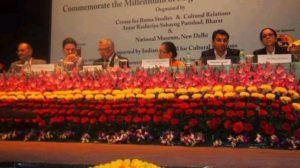
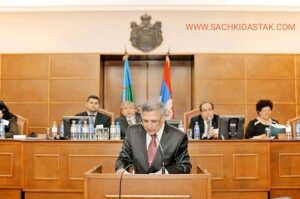
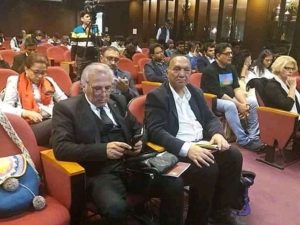


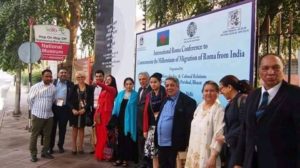






Dear Dr Bajram Hilti,
I am Indrajit Ghosh Mechanical Engineer with MBA from IMT, Ghaziabad & MBA from IBM Institute Berlin, Germany, Chairman MSME Chamber of Commerce and Industry of India.34 years of Experiences in plastics & Packaging , Social work like clean India, Green India, Digital India, Poor girl child education, women empowerment, Women Empowerment, in Healthcare and holding 18 portfolios in Pan India and Globally, Member of Leadership at Harvard Square, USA, and also a member of Leadership & Entrepreneurship at HIVE, California.
Till now got 57 awards Nationally & Internationally. Also attached to a Cancer Society & with Anti Corporation Foundation Of India, I traveled more than 40 countries and Dubai more than 35 times. Looking for an HONORARY DOCTORATE from your University. I also want to join your organization to contribute value around the World. Kindly provide your email address and Whatsapp no so that I can Speak with you and send my profile.
[…] the question of political recognition, the General Secretary of World Roma Organisation, Bajram Haliti once said ,“What is required to the political scene of India to initiate the process of recognition of Roma […]